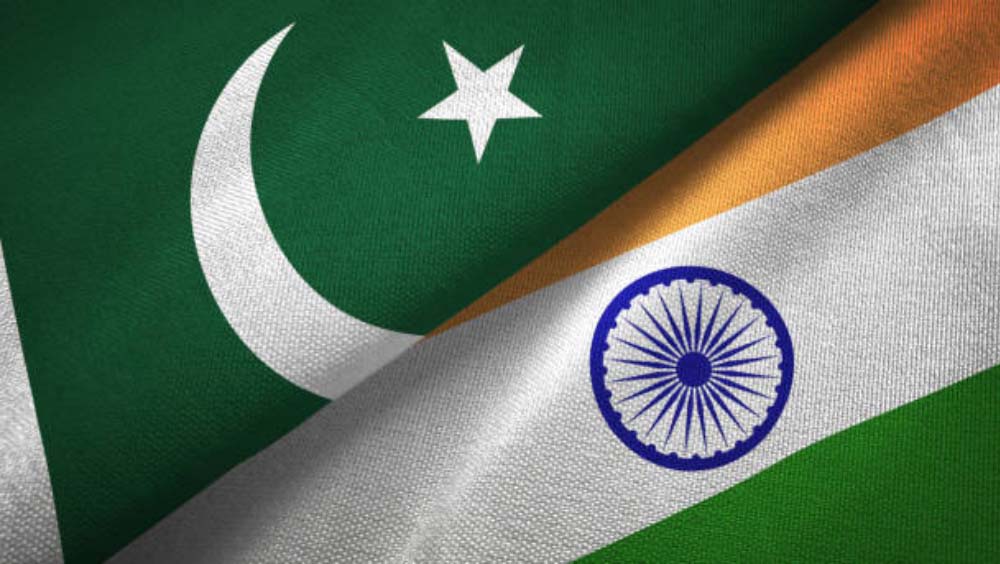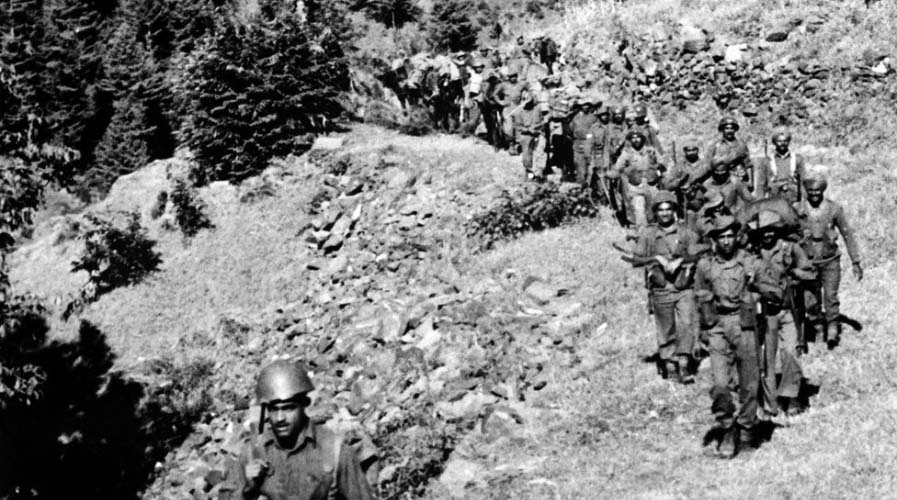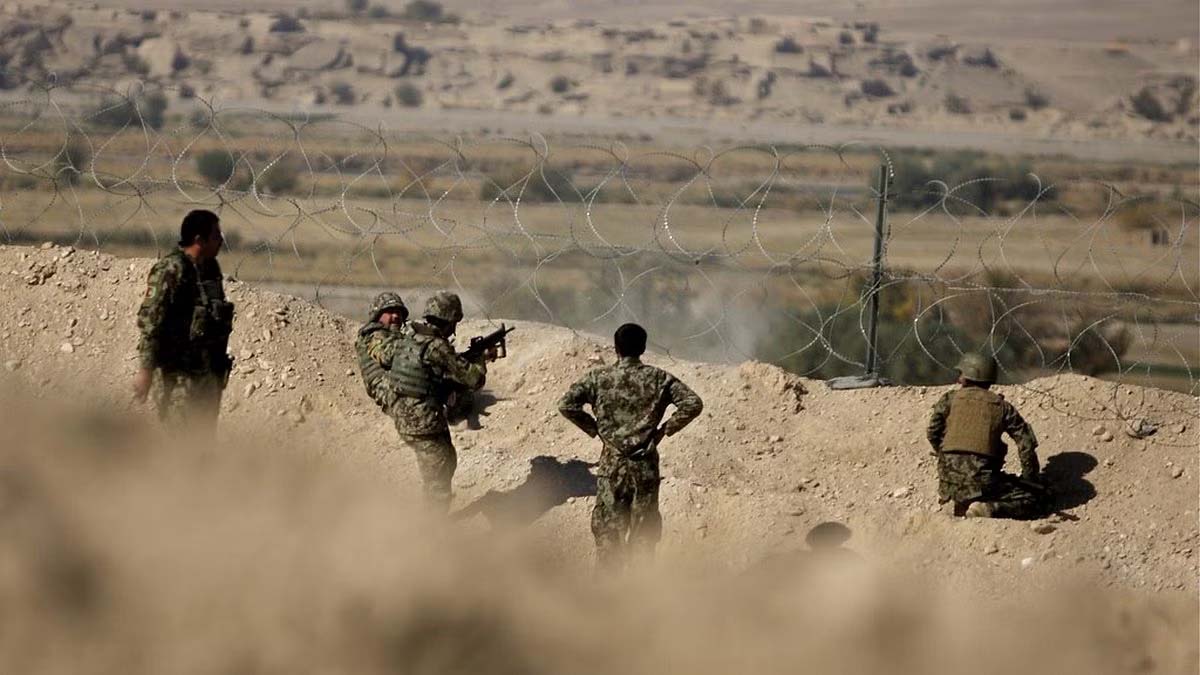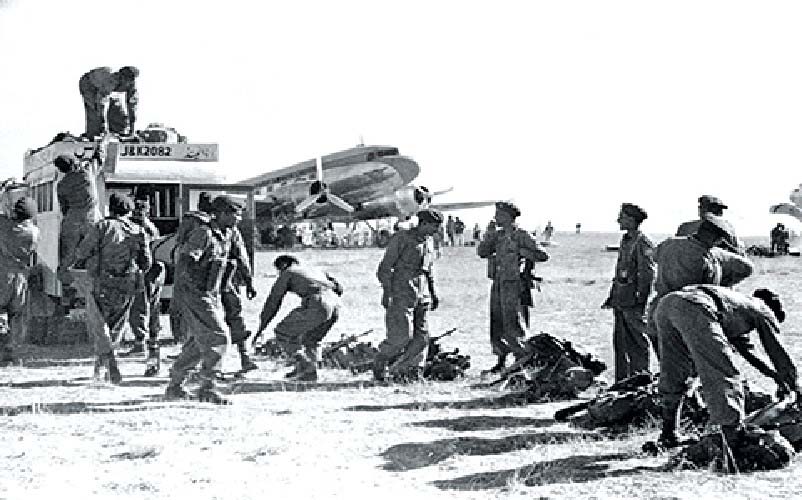
Op Gulmarg, Op Gibraltar, Op Grand Slam, Op Topac or Op Badr – guess what these names have in common? Well, all these are unsuccessful military operations launched by Pakistan, which refuses to learn from its past mistakes. No wonder, Pakistan is one country that has been to war many times – but has always tasted defeat and never won ever a single war against any country – big or small.
However, this has not stopped the Pakistani Generals from playing the game of deceit and deception. By now they know quite well that they cannot militarily defeat India on the battlefield; hence, they have always tried to stab India behind the back.
Ever since the partition of India, Pakistani Army Generals have been fascinated by Kashmir and have always tried everything possible to ‘liberate’ Kashmir from India, despite knowing well that they cannot defeat India, and hence cannot do so militarily.
Pakistan’s outlook is based on the presumptions that:
- Kashmiri Muslims do not wish to be a part of India any longer
- Kashmiris are simple-minded folk and cannot fight like the Punjabi, Pathan or Afghan mujahideen
- Pakistan can’t exploit this situation militarily but stands to gain much more by fueling a low-intensity conflict in Kashmir without getting involved directly
- Chinese and our other powerful Islamic countries friends would come to Pakistan’s rescue in case the situation gets out of control and ensure that if Pakistan does not win – it does not lose either.
Op Gulmarg
If we look into the history of the Pakistani Army, the liberation of Kashmir by deceit and treachery was the reason behind many unsuccessful military Operations like Op Gulmarg in October 1947, just two months after Pakistan’s birth, and Operation Gibraltar in 1965.
Operation Gulmarg was conceived in August 1947 under the command of Major General Akbar Khan. Sardar Shaukat Hayat Khan, a close aide of Muhammad Ali Jinnah also played a part in planning the operation. In his book “The Nation That Lost its Soul”, Shaukat accepted that he was appointed supervisor of the Kashmir operation and given Rs 300,000 from the treasury by then-Pakistani finance minister Ghulam Muhammad. Accordingly, Major General Akbar Khan fixed October 22, 1947, as the date of the attack and all lashkars were asked to converge at Abbottabad near the border by October 18. They were moved in civilian trucks and buses commandeered for this purpose… under the cover of night.

Op Gibraltar
In 1965, Operation Gibraltar was the codename of a military operation planned and executed by the Pakistan Army. Pakistan’s leadership specifically chose this name which symbolized the Muslim conquest of Portugal and Spain from the port of Gibraltar. Pakistani troops from the Azad Kashmir Regular Force, disguised as tribals covertly crossed the Line of Control (LoC) and tried to incite the Muslim-majority Kashmiri population and create unrest against the Indian Government. The idea was to occupy Jammu and Kashmir with the help of the locals. However, the strategy went awry due to poor coordination, and the infiltrators’ presence was soon disclosed to the Indian military.
Pakistan launched a major offensive named Operation Grand Slam on 1 September 1965. Operation Gibraltar thus became the immediate cause of the Indo-Pakistani War of 1965.

Op Topac
Pakistan’s second chief of army staff and sixth president Gen Zia-ul-Haq said, “Let there be no mistake, however, that our aim remains quite clear and firm-the liberation of Kashmir Valley – our Muslim Kashmiri brethren in the valley cannot be allowed to stay on with India for any length of time now. In the past, we had opted for ham-handed military options and, therefore, failed. So, as I have mentioned before, we now keep our military option for the last moment as a coup de grace, if and when necessary. Our Kashmiri brethren in the valley, though with us in their hearts and minds are simple-minded folk and do not easily take to the type of warfare to which, say a Punjabi or an Afghan takes to naturally, against foreign domination. The Kashmiris however have a few qualities, which we can exploit. First, his shrewdness and intelligence; second, his power to persevere under pressure; and third, if I may say so, he is a master of political intrigue. If we provide him means, through which he can best utilize these qualities- he will deliver the goods. Sheer brute force is in any case not needed in every type of warfare, especially so in the situation obtaining in the Kashmir valley, as I have explained earlier.”
Gen Zia-ul-Haq as a Captain had first-hand experience of communal violence at the time of partition in 1947 as the escort officer of the last train of refugees from the armoured corps-training centre Babina, Uttar Pradesh, to Pakistan. Later he went on to conceive of Op Topac plan to destabilize India and break it into smaller parts. The ultimate goal of Op Topac plan was to liberate Kashmir and establish it as an independent Islamic State.
Op Topac Phase 1:
- Spark a low-level insurgency so that Kashmir, but ensure that the situation does not deteriorate enough to warrant a central rule
- Plant chosen men in key positions in the police, financial institutions, communication network and other important organizations.
- Whip up anti-India feelings amongst the students and peasants, and enlist their support for anti-Government demonstrations and rioting.
- Organize and train subversive elements and armed groups to deal with paramilitary forces
- Cut off lines of communications both with the rest of India and within Jammu and Kashmir
- Create chaos and terror in Jammu to divert attention from the valley and discredit the regime even in the Hindu mind
- Control those parts of Kashmir Valley where the Indian army is not located or deployed
Op Topac Phase 2:
- Exert maximum pressure on Siachen, Kargil and Rajuri-Punch sectors to force the Indian army to deploy reserve formations outside the main Kashmir Valley.
- Attack and destroy base depots and HQ located at Srinagar, Pattan, Kupwara, Baramulla and Chowkiwala by covert action at a given time.
- Infiltrate Afghan Mujahideen in Azad Kashmir
- Attack and destroy airfields, radio stations, block Banihal Tunnel and Kargil-Leh Highway.
“Finally, I wish to caution you once more that it will be disastrous to believe that we can take on India in a straight contest. We must therefore, be careful and maintain a low military profile so that the Indians do not find an excuse to preempt us, by attacking at a time and at a point of their own choosing at least before Phase I and 2 of the Operation are over. We must pause and assess the course of operations after each phase, as our strategy and plans may require drastic changes in certain circumstances. I need not emphasize any further that a deliberate and objective assessment of the situation must be ensured at each stage, otherwise a stalemate will follow with no good for Pakistan.” Gen Zia had suggested in one of his briefings to Pakistan Army and ISI officers.
Op Badr (name given by Pakistan, called ‘Operation Vijay’ by India)
As Pakistani Lieutenant General (retd) Shahid Aziz writes in his book ‘Ye Khamoshi Kab Tak’ four Pakistani generals – Gen Pervez Musharraf, the then chief of Army staff, Lt Gen Mohammad Aziz, FCNA (Force Command Northern Areas), Lt Gen Javed Hassan and 10-Corps commander Lt Gen Mahmud Ahmad planned the Kargil misadventure.
No one else in the Pakistan Army, Air Force, Navy, Inter-Services Intelligence (ISI) and even the then Prime Minister, Nawaz Sharif had a clue about the plan. Even the then Director General of Military Operations (DGMO) Lt Gen Tauqir Zia came to know about it later. A majority of corps commanders and principal staff officers were kept in the dark.
The idea behind the top-secret operation was to seek revenge against India’s capture of more than 1000 square miles of Siachen Glacier in 1984 which gave India an unparalleled edge over both China and Pakistan.
Pakistan wanted to take revenge and Kargil provided the right opportunity as both armies used to vacate their posts on the Line of Control (LOC) during winters and re-occupy them in summers.
Hence the Pakistani Generals thought of capturing Kargil and using it to get India to return the posts it had captured in Siachen. At the back of their minds, the Pakistani Generals knew it that India would not like to give up the strategically located posts on hilltops in Kargil overlooking the supply lines to the Siachen glacier.
So after the Indian troops vacated their posts during winter, Pakistani infiltrators captured around 150 Indian posts in Kargil without anyone in India or Pakistan having a clue about it.
The cat was finally let off of the bag when the Chinese taped Musharaff’s phone in China where he had gone for a state visit and passed on the information to the CIA which told the Indians about it.
Some analysts believe that the blueprint of the attack was prepared soon after Pervez Musharraf was appointed chief of army staff in October 1998.
Retired Pakistani major general, Abdul Majeed Malik blames Musharraf for Kargil which was a “total disaster”. According to Malik active-duty serving officers and soldiers of the Pakistan Army not “Mujaheddin” took part in that operation.
The then Chief of Naval Staff Admiral Fasih Bokhari is believed to have called for court-martial proceedings against General Musharraf.
Even Former prime minister and leader of opposition in the parliament Benazir Bhutto called the Kargil War “Pakistan’s greatest blunder”.
Likewise, many ex-military and ISI officials believe that “Kargil was a waste of time” and did not have any result on the larger issue of Kashmir.
Pakistan Army’s Lieutenant-General Ali Kuli Khan described Pakistan’s Kargil misadventure as “flawed in terms of its conception, tactical planning and execution”. According to him, the plan ended up in “sacrificing so many soldiers” and was a bigger disaster bigger than the East Pakistan tragedy”.
-The writer is a seasoned media professional with over three decades of experience in print, electronic, and web media. He is presently Editor of Taazakhabar News
















